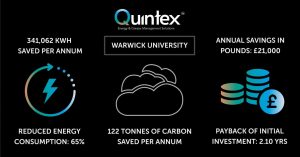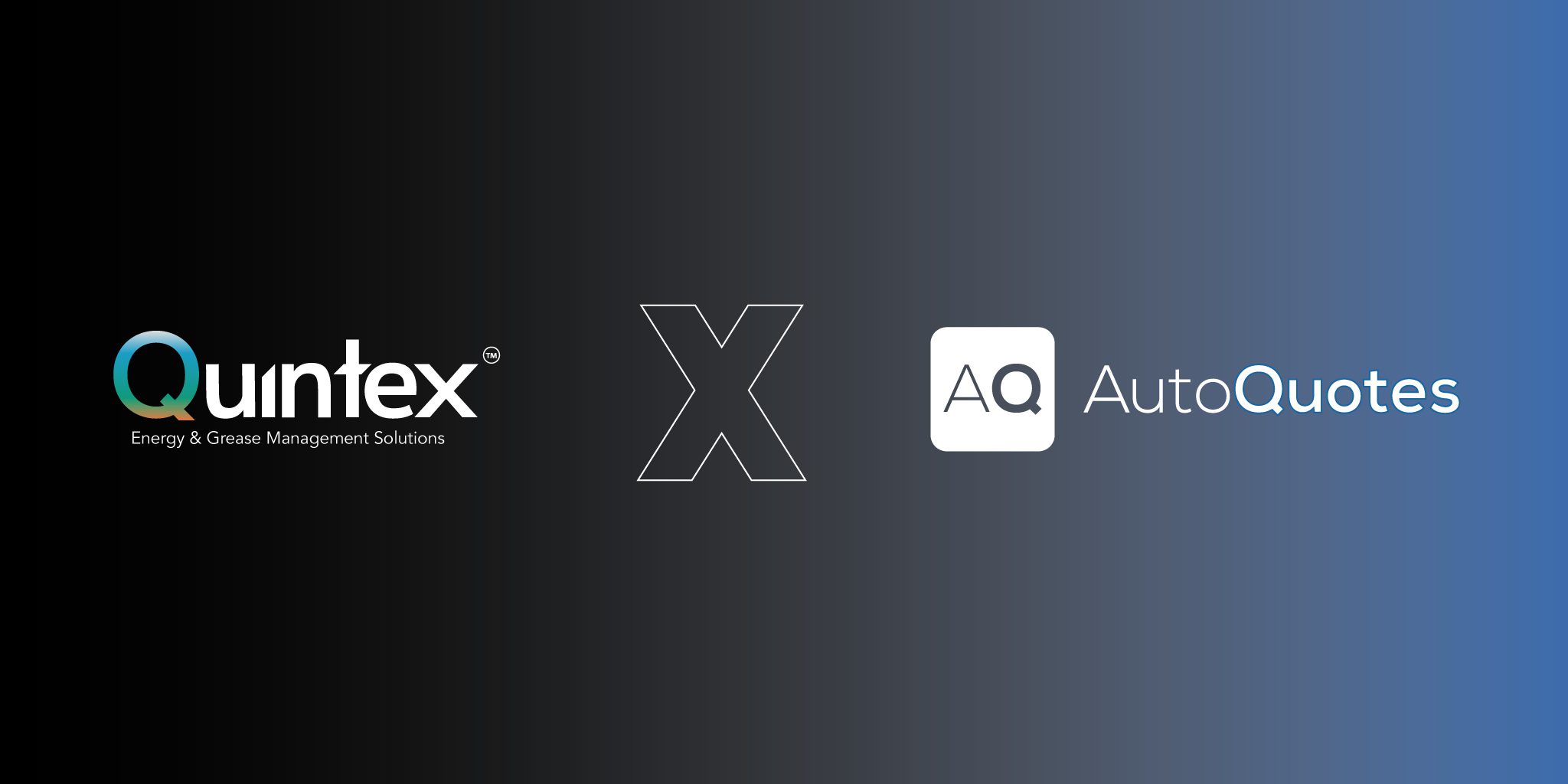Stanford University
Stanford University’s goal is to become 80% carbon free by 2025. It currently gets 65% of its electricity from renewable sources, the majority of which comes from the Stanford Solar Generating Station. When the second Generating Station comes online this year, this number will increase to 100%.
The campus offers opportunities to test and evaluate new solutions as the university works to become zero-waste, defined as 90% diversion or higher, by 2030. With all these goals in place, it’s clear that this University means business when it comes to their sustainability – and we applaud their efforts!
How can Quintex help universities to save money and energy, and reduce their carbon footprint?
We’ve already been helping schools, colleges and universities to reduce their carbon footprint and be more aware of their energy usage through our Cheetah system, and have helped universities across the UK save thousands in kW and CO2.
Take a look at our case study for Warwick University, one of Britain’s leading universities. The University has installed Cheetah Energy Controls into three kitchens across the campus, giving a total saving per annum of over £21,000 and a 65% energy reduction!

With remote monitoring and up to 80% energy savings, our Cheetah system can help your university exceed your net carbon goals and work to a brighter future. If we can play a part in reducing your carbon footprint and saving money on those growing energy bills, get in touch with the Quintex team today: 0118 973 9310

